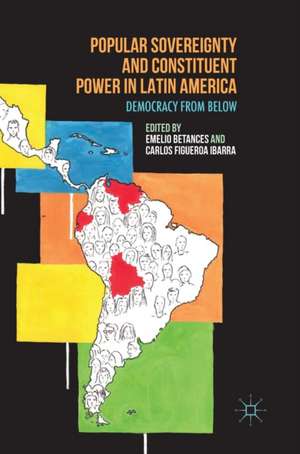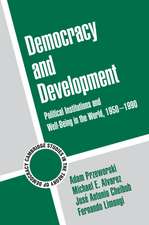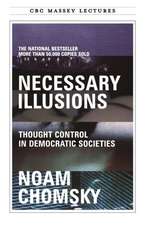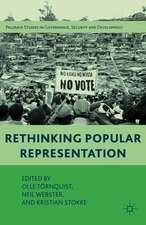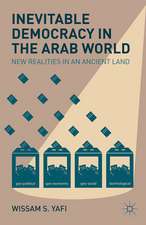Popular Sovereignty and Constituent Power in Latin America: Democracy from Below
Editat de Emelio Betances, Carlos Figueroa Ibarraen Limba Engleză Hardback – 24 noi 2016
Preț: 729.06 lei
Preț vechi: 889.09 lei
-18% Nou
Puncte Express: 1094
Preț estimativ în valută:
139.52€ • 151.50$ • 117.20£
139.52€ • 151.50$ • 117.20£
Carte tipărită la comandă
Livrare economică 22 aprilie-06 mai
Preluare comenzi: 021 569.72.76
Specificații
ISBN-13: 9781137548245
ISBN-10: 113754824X
Pagini: 234
Ilustrații: XIII, 208 p.
Dimensiuni: 148 x 210 x 19 mm
Greutate: 0.49 kg
Ediția:1st ed. 2016
Editura: Palgrave Macmillan US
Colecția Palgrave Macmillan
Locul publicării:New York, United States
ISBN-10: 113754824X
Pagini: 234
Ilustrații: XIII, 208 p.
Dimensiuni: 148 x 210 x 19 mm
Greutate: 0.49 kg
Ediția:1st ed. 2016
Editura: Palgrave Macmillan US
Colecția Palgrave Macmillan
Locul publicării:New York, United States
Cuprins
1. Introduction .- 2. Constituent and Constituted Power: Reading Social Transformation in Latin America .- 3. The National-Popular Alternative and the Processes of Democratization from Below in the Andean Nations .- 4. Visions of Democracy in Bolivia between the Dictatorships and the Process of Change. Suite in Two Movements .- 5. Movements towards the People. A Proposal to Think of Political Subjects in Bolivia and Argentina .- 6. Participative Democracy and the Alternative National Project of Morena in México .- 7. Building Social Citizenship: Popular Movements in the Dominican Republic, 1992-2014 .- 8. Popular Feminism at Work: Redistribution and Recognition in the Marcha Mundial das Mulheres in Brazil .- 9. Popular Power and Regional Integration. An Analysis of the ALBA-TCP.
Notă biografică
Emelio Betances holds a Ph.D. in Sociology (1989) from Rutgers, The State University of New Jersey, USA, and teaches Sociology at Gettysburg College, USA. His publications include State and Society in the Dominican Republic (1995), The Catholic Church and Power Politics in Latin America: The Dominican Case in Comparative Perspectives (2007), and En busca de la ciudadanía: los movimientos sociales y la democratización en la República Dominicana (2016).
Carlos Figueroa Ibarra received his Ph.D. in Sociology and teaches at the graduate program of the Institute of Social Sciences at the Benemérita Universidad Autonoma de Puebla, Mexico. His works include El Proletariado rural en el agro guatemalteco (1980), El recurso del miedo. Ensayo sobre Estado y terror en Guatemala (1980), Paz Tejada: militar y revolucionario (2001), and En el umbral del posneoliberalismo? Izquierda y gobierno en América Latina (2010).
Carlos Figueroa Ibarra received his Ph.D. in Sociology and teaches at the graduate program of the Institute of Social Sciences at the Benemérita Universidad Autonoma de Puebla, Mexico. His works include El Proletariado rural en el agro guatemalteco (1980), El recurso del miedo. Ensayo sobre Estado y terror en Guatemala (1980), Paz Tejada: militar y revolucionario (2001), and En el umbral del posneoliberalismo? Izquierda y gobierno en América Latina (2010).
Textul de pe ultima copertă
This book combines a bottom-up and top-down approach to the study of social movements in relationship to the development of constituent and constituted power in Latin America. The contributors to this volume argue that the radical transformation of liberal representative democracy into participative democracy is what colours these processes as revolutionary. The core themes include popular sovereignty, constituted power, constituent power, participatory democracy, free trade agreements, social citizenship, as well as redistribution and recognition issues. Unlike other collections, which provide broad coverage of social movements at the expense of depth, this book is of thematic focus and illuminates the relationships between rulers and ruled as they transform liberal democracy.
Caracteristici
Examines the troubled relationship between movements and the state, regardless of whether the latter’s agenda is progressive or not Draws from a variety of national experiences and a variety of different types of social movements in the region Constitutes a thematic text that explains how a two-track approach, bottom up and top down, has shaped the social transformation of Latin America
